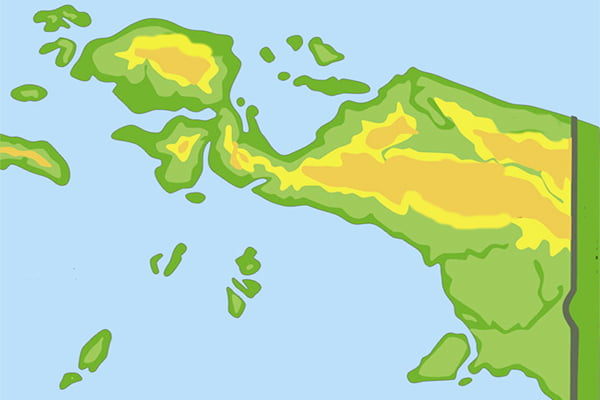Regional Expansion Directly Involves Indigenous Papuan Communities
Efforts to improve the prosperity of Papua Province continue to be carried out by the government under President Jokowi. This commitment is realized by expanding regions or New Autonomous Regions (DOB) to be able to compete with other provinces. So far, Papua Province is still too wide for regional governments to reach. People also have difficulty accessing health, education and administrative facilities. With this DOB, it is hoped that the community will find it easier to access public facilities. So, prosperity can soon be realized in Papua and reduce the gap with other regions.
Regional expansion is an aspiration and dream of the Papuan people. Because it is through this DOB that efforts can be made to accelerate the development and welfare of the Papuan people. The addition of a new new autonomous region in Papua will also open up access to development which will have a welfare impact on the Papuan people. Because, so far only the two provinces of Papua and West Papua have been the focus of development. Apart from that, the existence of a new province in Papua is expected to encourage faster and more massive access to services for the community.
Through the expansion of this region, it is hoped that it will open up access for indigenous Papuans to be involved in government, development and even the economy. Development in Papua must continue to be encouraged, because it can stimulate progress which also has an impact on improving the quality of everything. The acceleration of new autonomous development will of course provide new opportunities for local people to develop their potential.
Deputy Bishop of the Manokwari-Sorong Diocese, Father Lewi Ibori, said that a conducive and dignified atmosphere must be sought for the future of Southwest Papua. Therefore, the involvement of all Papuan people in all aspects of development is important in building peace and strengthening the sense of belonging to this country. Implementing the Papua Special Region is the most appropriate way to optimize services to the indigenous Papuan community, as well as realizing the government’s efforts to equalize development.
Progress after the construction of new autonomous regions is because people will be closer to public service centers, and of course this will be followed by the construction of other facilities such as health centers, terminals and various facilities that can be used by the community. The government’s main task is to serve the community, so that the development of new autonomous regions is an effort to speed up the service process in Papua.
The Head of the Maybrat Tribe, Yermias Naur, said that his party hopes that Papuan children can be directly involved in all development, including government, infrastructure and the economy. Because so far, most native Papuan children are unemployed even though they have graduated from school and college. Unemployment is caused by more immigrants finding work. Because they felt marginalized, only a spectator, and hurt, conflicts arose and incidents such as beatings and shootings occurred.
Meanwhile, Cendrawasih University Academician Marinus Yaung said on his occasion that when discussing the issue of accelerating development in Papua, there are two things that need to be considered. The first is “capital” and the second is human resources or human readiness. He explained that the qualifications of indigenous Papuan workers have a variety of reliable skills and knowledge to support company performance. So, the involvement of indigenous Papuans will have a very positive impact on the economic progress of the Province.
DOB will inspire new enthusiasm and hope in the community as well as a golden opportunity for generations in Papua to achieve better prosperity. It cannot be denied that now the public services provided by the Central Government can run very well and are distributed to indigenous Papuan communities to all corners of Bumi Cenderawasih because they are helped by the existence of the new autonomous region. With the improvement in public services, the people in Papua are very grateful.
Having a new autonomous region in Papua will give hope for equitable development in Papua. The Papua expansion policy is a mandate and implementation of Law (UU) Number 2 of 2021 concerning Special Autonomy (Otsus) for Papua, specifically Article 76. Thus, the main foundation of the three expansion bills must guarantee and provide space for indigenous Papuan people. It is hoped that the regulations created can become a concrete legal umbrella, especially in the implementation of governance in the early stages and in the following periods in the three provinces.
The implementation of the Papua Special Region is the result of political compromise efforts made between the indigenous Papuan people and the central government in resolving the multidimensional conflict which continues to occur, even for a long time, in Bumi Cenderawasih.
To support this program, the Government wants at least 80 percent of ASN in Papua to be native Papuans, so that improvements in community welfare can truly be realized. The Government’s strong desire, which includes developing natural resources, infrastructure development, and supporting fair development policies for the interests of the Papuan people, is the main capital for developing the prosperity of the Land of Papua.
